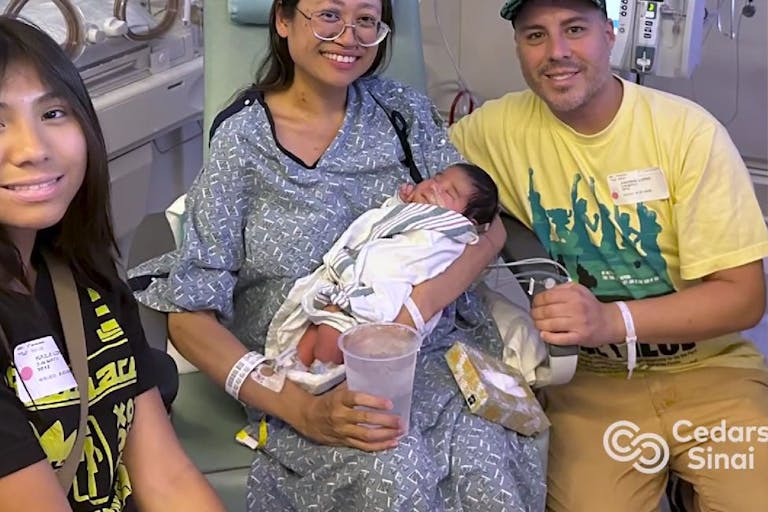At Obria Clinics PNW, we provide many services, including pregnancy testing and ultrasound exams. Call (360) 452-3309 or visit us online to schedule an appointment: obria.org #obriastrong #obriapnw #washingtonstate #womenshealth #pregnanyservices

Medical pregnancy centers fight lie that Planned Parenthood is about women’s health
Medical pregnancy centers fight lie that Planned Parenthood is about women’s health
Stripping Planned Parenthood, the nation’s largest abortion corporation, of federal funding has long been a central goal of the pro-life movement. With taxpayer funding redirected to pregnancy resource centers, women could have real choices when they face unplanned pregnancies. However, such endeavors — to the frustration of pro-life leaders — have yet to come to fruition through Congressional action. A recent study showed that Planned Parenthood received $1.5 billion federal dollars from 2013 to 2015, and its second largest source of its federal funding came from the Title X ‘family planning’ program. But what if pregnancy resource centers could have access to this same Title X federal funding? One policy revision by the Trump administration that could be finalized in early 2019 would allow pro-life facilities to compete for these federal dollars.
One of these pro-life pregnancy resource center networks, the Obria Medical Clinics, is looking to take its model nationwide with a portion of the annual $260 million Title X funding.
Kathleen Eaton Bravo, a savvy and experienced businesswoman who had a profound reversion to her Roman Catholic faith following her own abortion 38 years ago, founded the Obria Medical Clinics group in 2015. Obria now operates in five states: California, Washington, Iowa, Oregon, and Georgia. An infusion of federal dollars could help Obria to expand from its current network of 35 clinics to an ambitious goal of 200 throughout the U.S. by 2021. To reach that goal, Obria would need about $90 million, or $300,000 to $500,000 per clinic.
READ: 5 frequently asked questions about defunding Planned Parenthood
Obria Medical Clinics are emblematic of the best that present-day pregnancy resource centers have to offer, including a wide variety of medical, educational, and support services to women in need. Before 2006, Bravo ran the type of pregnancy resource centers that mainly focused on distributing maternity clothes, formula, and diapers. However, she came to believe that this model wasn’t reaching a large portion of the women seeking abortions. She noticed that most who came to her pregnancy centers had not been considering abortion, but were in need of medical or other assistance.
In 2009, Bravo set out to reach these high risk populations by creating a trustworthy, state-of-the-art network of accredited health clinics that would rival services available at nearby abortion facilities. “We’ve been reactive in the pro-life movement for 40 years,” Bravo explained in an interview with the National Catholic Register. “Let’s be proactive and go to the root cause of the problem.”
Article continues below
Dear Reader,
Have you ever wanted to share the miracle of human development with little ones? Live Action is proud to present the "Baby Olivia" board book, which presents the content of Live Action's "Baby Olivia" fetal development video in a fun, new format. It's perfect for helping little minds understand the complex and beautiful process of human development in the womb.
Receive our brand new Baby Olivia board book when you give a one-time gift of $30 or more (or begin a new monthly gift of $15 or more).
This tweet is no longer available. It may have been deleted or made private. Try on X.
By 2015, Bravo had fully transformed her pregnancy resource centers into accredited, pro-life medical clinics offering a full-range medical services, including STD treatment, prenatal care, cancer screenings, ultrasounds, and pregnancy tests. While Obria does not refer for abortion or contraception, many of the services offered overlap with those available at nearby Planned Parenthood. But, unlike Planned Parenthood, no patient is turned away for lack of funds.
READ: What women need to know about pregnancy resource centers
A unique feature of Bravo’s vision is her method of expansion. Bravo employs a franchise model that enables the Obria Group both to certify existing pregnancy resource centers that meet their standards and also to transform those that don’t. The end result is a network of accredited clinics with common standards under a unified brand, marketed “to provide women, men, students, and families compassionate, comprehensive and high-quality health care.” According a 2018 report from the Charlotte Lozier Institute, there are 2,752 pregnancy help centers across the country, a large pool that could benefit from Bravo’s initiative.
If the Trump administration’s rule change proceeds, pregnancy resource centers at the forefront of the fight for life could gain an unexpected tailwind from a sudden infusion of massive capital and begin to displace the pro-abortion monopoly on Title X funds. In a sign that the move poses real challenges to their business model, pro-abortion groups have been vociferous in opposition to the pending federal rule change.
Title X is meant to help people access quality reproductive care—NOT increase the lies spread by anti-choice organizations that frequently provide NO actual healthcare services. politico.com/story/2018/12/…
Federal funds could enable the expansion of life-affirming groups like Obria and progress in winning the pro-life argument on the front lines — with the efforts of the many other outstanding pro-life resource centers — by undermining the deception that Planned Parenthood cares more about women’s health.
Live Action News is pro-life news and commentary from a pro-life perspective.
Contact editor@liveaction.org for questions, corrections, or if you are seeking permission to reprint any Live Action News content.
Guest Articles: To submit a guest article to Live Action News, email editor@liveaction.org with an attached Word document of 800-1000 words. Please also attach any photos relevant to your submission if applicable. If your submission is accepted for publication, you will be notified within three weeks. Guest articles are not compensated (see our Open License Agreement). Thank you for your interest in Live Action News!
Read Next

Full term 'miracle' baby born after 'unprecedented' ectopic pregnancy
Bridget Sielicki
·More In Activism

Activism
Christian college allows pro-life club after resolving 'misunderstanding'
Bridget Sielicki
·
Guest Column
Three Texas cities become 88th, 89th, and 90th 'Sanctuary Cities for the Unborn' in US
Mark Lee Dickson
·
Guest Column
Two Texas cities become 86th and 87th Sanctuary Cities for the Unborn in US
Mark Lee Dickson
·
Guest Column
13th Texas county outlaws abortion and use of roads for ‘abortion trafficking’
Mark Lee Dickson
·
Activism
Activists arrested for blockading doors at TN Planned Parenthood
Nancy Flanders
·More From Laura Nicole

Human Interest
California fire captain reunited with preemie he helped to save
Laura Nicole
·
Human Interest
Quintuplet born weighing just 8 ounces is home to celebrate his birthday
Laura Nicole
·
Newsbreak
Philadelphia tests program to reduce infant mortality, giving pregnant moms $1000 monthly
Laura Nicole
·
Human Interest
High school football player with Down syndrome goes viral
Laura Nicole
·
Human Interest
Miracle preemie born weighing a pound at birth goes home after a two-month NICU stay
Laura Nicole
·